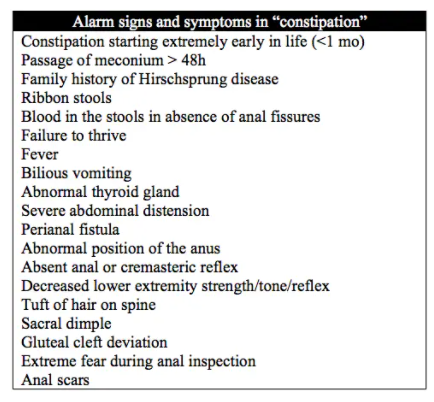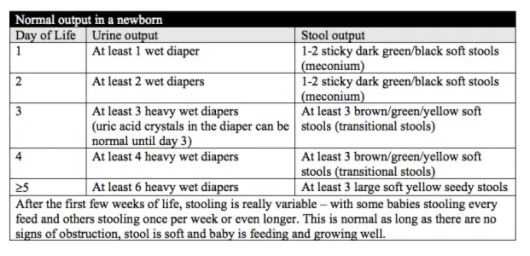In this post, I link to and excerpt from Neonatal “Constipation”*
*Helman, A. Morgenstern, J. Ivankovic, M. Long, B. Reid, S. Swaminathan, A. EM Quick Hits 25 – Cerebral Venous Thrombosis, Diphenhydramine Alternatives, Abdominal Compartment Syndrome, Neonatal Constipation, Intubating Metabolic Acidosis. Emergency Medicine Cases. January, 2021. https://emergencymedicinecases.com/em-quick-hits-january-2021/. Accessed January 27, 2021.
Topics in this EM Quick Hits podcast
Justin Morgenstern on when to consider cerebral venous thrombosis (00:53)
Maria Ivankovic on diphenhydramine alternatives (07:38)
Brit Long on abdominal compartment syndrome (13:13)
Sarah Reid on neonatal constipation (19:37)
Anand Swaminathan on intubating metabolic acidosis (27:40)
Here are the show notes from Dr. Reid’s outstanding lecture on Neonatal “Constipation”
Neonatal “Constipation” Red Flags, DDx and ED Management
- Poor stooling in a newborn is common and often triaged as “constipation”; however, it is most often a result of breastfeeding not being fully established
Management:
- Fractionated bilirubin if concerns about feeding, hydration or weight loss; use bilitool.org to determine the need for phototherapy or exchange transfusion
- Abdominal X-ray with two views if concern for obstruction (bilious vomiting, abdominal distension) if you don’t have other imaging modalities available
- IV fluid resuscitation with strong consideration of full septic workup and empiric antibiotics in any newborn who is lethargic, dehydrated*, appears unwell
*Learning About Dehydration in Newborns from MyHealth.Alberta.ca:
What is dehydration?
Dehydration means that your baby has lost too much fluid. This can happen when a baby hasn’t been taking in enough breast milk or formula. Diarrhea, vomiting, or sweating can also cause a baby to lose too much fluid. Common signs of dehydration include a dry diaper for 6 or more hours, a dry mouth, or sunken eyes with few tears.
Management:
- Fractionated bilirubin if concerns about feeding, hydration or weight loss; use bilitool.org to determine the need for phototherapy or exchange transfusion
- Abdominal X-ray with two views if concern for obstruction (bilious vomiting, abdominal distension) if you don’t have other imaging modalities available
- IV fluid resuscitation with strong consideration of full septic workup and empiric antibiotics in any newborn who is lethargic, dehydrated, appears unwell
Disposition:
- Home if: baby is well and there are no red flags; parents are comfortable with increasing feeds, stimulating baby to stay awake during feeds, seeking close follow up with primary care (in next 1-2 days for weight check)
- Admission to paediatrics if: baby is significantly dehydrated, weight loss ³ 10%, concern about underlying abnormality on exam, or social concerns
- General surgery consultation if: concerned about obstruction, Hirschsprung disease, or anal abnormalities
Bottom line: “constipation” in a newborn is likely attributable to ineffective breastfeeding, but be sure to assess for red flags and rule out serious illness.
From Pediatric Telephone Protocols, 14th Edition:
Infrequent Breastfed Stools Are Abnormal Before 4 Weeks Old
- The concern about infrequent stools only applies to breastfed infants who are less than 4 weeks of age. No one is worried about formula-fed infants because we can track their intake.
- Infrequent stools during the first weeks of life are caused by inadequate by inadequate milk production OR inadequate milk transfer until proven otherwise.
- The main problem of not recognizing this problem is dehydration of the newborn. Rarely, severe dehydration can progress to DIC, renal failure, or a stroke. These complications usually occur on day of life 7 to 14.
- Response: All newborns with infrequent stools are referred to the office for a weight check, jaundice check, etc.
Pediatric Telephone Protocols 14th ed is an excellent resource for both BOTTLE-FEEDING (FORMULA) QUESTIONS [pp 23-25] and for BREASTFEEDING QUESTIONS [pp 27-34].







